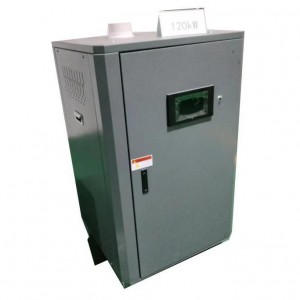- Afrikaans
- Albanian
- Amharic
- Arabic
- Armenian
- Azerbaijani
- Basque
- Belarusian
- Bengali
- Bosnian
- Bulgarian
- Catalan
- Cebuano
- China
- China (Taiwan)
- Corsican
- Croatian
- Czech
- Danish
- Dutch
- English
- Esperanto
- Estonian
- Finnish
- French
- Frisian
- Galician
- Georgian
- German
- Greek
- Gujarati
- Haitian Creole
- hausa
- hawaiian
- Hebrew
- Hindi
- Miao
- Hungarian
- Icelandic
- igbo
- Indonesian
- irish
- Italian
- Japanese
- Javanese
- Kannada
- kazakh
- Khmer
- Rwandese
- Korean
- Kurdish
- Kyrgyz
- Lao
- Latin
- Latvian
- Lithuanian
- Luxembourgish
- Macedonian
- Malgashi
- Malay
- Malayalam
- Maltese
- Maori
- Marathi
- Mongolian
- Myanmar
- Nepali
- Norwegian
- Norwegian
- Occitan
- Pashto
- Persian
- Polish
- Portuguese
- Punjabi
- Romanian
- Russian
- Samoan
- Scottish Gaelic
- Serbian
- Sesotho
- Shona
- Sindhi
- Sinhala
- Slovak
- Slovenian
- Somali
- Spanish
- Sundanese
- Swahili
- Swedish
- Tagalog
- Tajik
- Tamil
- Tatar
- Telugu
- Thai
- Turkish
- Turkmen
- Ukrainian
- Urdu
- Uighur
- Uzbek
- Vietnamese
- Welsh
- Bantu
- Yiddish
- Yoruba
- Zulu
Říj . 22, 2024 12:49 Back to list
Optimization of Domestic Hot Water Heat Exchangers for Enhanced Energy Efficiency
Understanding Domestic Hot Water Heat Exchangers
As modern households strive for energy efficiency and comfort, domestic hot water systems play a crucial role in providing a reliable supply of hot water while optimizing energy usage. One of the key components in these systems is the heat exchanger, a device designed to transfer heat between two or more fluids without mixing them. In the context of domestic hot water, heat exchangers enable the effective heating of water which can then be used for various household applications such as bathing, cooking, and cleaning.
What is a Heat Exchanger?
A heat exchanger is a system or device that allows heat to be transferred from one medium to another without the two media coming into direct contact. In domestic hot water systems, the heat exchanger typically transfers heat from a heating source—such as gas, oil, or electric heating elements—to the cold water entering the household plumbing. This process is essential for ensuring that the water reaches the desired temperature before it is delivered to taps, showers, and appliances.
Types of Heat Exchangers
There are several types of heat exchangers commonly used in domestic hot water systems
1. Shell and Tube Heat Exchangers These consist of a series of tubes, one set carrying the hot fluid while the other carries the cold fluid. The design allows for a large surface area for heat exchange, making them efficient for high-capacity applications.
2. Plate Heat Exchangers Made up of multiple thin plates stacked together, plate heat exchangers have a compact design and provide a large surface area for heat transfer. They are particularly effective for low- to medium-capacity applications.
3. Spiral Heat Exchangers These consist of two spirals that allow the hot and cold fluids to flow through in a compact formation, enhancing heat exchange efficiency. Their design minimizes space, making them ideal for smaller installations.
domestic hot water heat exchanger

4. Finned Tube Heat Exchangers These heat exchangers use extended surfaces, known as fins, to increase the surface area for heat transfer. They are often used where a significant temperature difference exists or when needed to manage condensation effectively.
The Role of Heat Exchangers in Domestic Hot Water Systems
The primary role of heat exchangers in domestic hot water systems is to ensure that water is heated efficiently. When cold water enters the system, it passes over the heat exchanger where it absorbs heat from the heating medium. This process is crucial for maintaining a consistent supply of hot water throughout the house.
An important advantage of using heat exchangers is their ability to maximize energy efficiency. In many systems, the heat exchange process can facilitate the use of renewable energy sources, such as solar thermal systems. For instance, a solar collector can heat the water, which then passes through a heat exchanger to ensure it reaches the necessary temperature for household use. This not only reduces energy costs but also contributes to a more sustainable lifestyle.
Maintenance Considerations
While heat exchangers are designed to be robust and efficient, they do require regular maintenance to continue functioning optimally. Common maintenance tasks include checking for leaks, cleaning the exchanger surfaces to minimize scale build-up, and inspecting connections for corrosion. Furthermore, ensuring that the hot water temperature remains safe—generally around 120°F (49°C) to prevent scalding without encouraging the growth of harmful bacteria—should be a priority for homeowners.
Conclusion
In conclusion, domestic hot water heat exchangers are vital components of efficient and effective hot water systems. By transferring heat from one fluid to another, they ensure that homeowners have access to a reliable supply of hot water while promoting energy efficiency. Understanding the different types of heat exchangers and their roles can aid homeowners in making informed decisions about their hot water systems, leading to improved comfort and reduced energy costs. As technology advances and the demand for sustainable solutions grows, heat exchangers will continue to play an integral role in modern domestic hot water systems.
-
Ductile Iron Casting Solutions High-Strength & Corrosion-Resistant
NewsMay.13,2025
-
Custom Low Nitrogen Condensing Gas Boilers for Domestic Hot Water
NewsMay.13,2025
-
EN877 Grey Cast Iron Pipe Casting Custom Epoxy Coating Solutions
NewsMay.12,2025
-
Cast Silicon Aluminum Heat Exchanger for Commercial Boilers High Efficiency
NewsMay.12,2025
-
Custom Colloidal Silica Casting High-Precision & Durable Solutions
NewsMay.11,2025
-
Premium Metal Sand Casting Services Custom & ODM Solutions
NewsMay.11,2025


